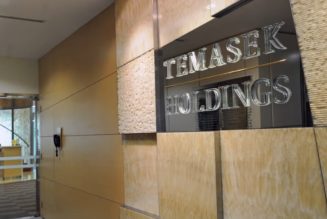
At a yard in Nairobi, cars are packed to the brim waiting for bids at auctions where there have not been enough buyers lately, a mounting problem in Kenya as share of loan defaults hit a new 18-year high in August.
A soft economy and costly loans have given birth to a rising number of distressed borrowers whose assets from homes to cars and furniture are being seized by aggressive banks.
Data from the Central Bank of Kenya (CBK) shows that non-performing loans (NPLs) hit a record Sh674.9 billion in August from Sh657.6 billion in July and Sh621.3 billion at the start of the year.
The mounting defaults reflected economic challenges for both businesses and households led to a fall in sales and sluggish activity—which triggered job cuts, reduced pay, losses and business closures that ultimately made it difficult for households to repay their loans in time.
This has triggered a rise in property auctions and negative listing of additional thousands of people with the credit reference bureaus (CRBs), hurting the debtors’ chances of being able to borrow more.
The share of non-performing loans (NPL) in the banking industry rose to 16.7 percent in August, the central bank said, remaining in double digits for months and at levels last seen in April 2006.
Joseph Gikonyo, the chief executive of Garam Auctioneers, reported a glut of repossessed vehicles, land, homes and office equipment, which are being sold off cheaply.
“The market is saturated with houses, commercial buildings, repossessed motor vehicles, and office furniture. Distressed borrowers cut across the board. Every day, we are repossessing cars and attaching to properties left right and centre,” said Mr Gikonyo.
“While there has been an increase in the number of properties being put up for auction, there has been a corresponding low uptake of these assets. In fact, the uptake is at a historical low.”
He reckoned that storage yards for seized properties have sprung in Nairobi and across the country as rounds of auction a month surge.
“I would say the business is booming even as it becomes saturated because Kenyans will typically copy successful businesses,” said Mr Gikonyo, while suggesting new entrants in the auctioneering business.
Industries and other businesses have frozen their activities in response to the sluggish economy, leading to job cuts as profitable firms report reduced earnings.
This has seen workers who had tapped mortgages and unsecured loans for purchase of goods such as furniture and cars and expenses like school fees default in a business environment where their monthly take home has been reduced due to increased levies.
Workers’ pay shrunk following the introduction of the housing levy equivalent to 1.5 percent of monthly salary. The insurance levy will also go up this month following a 2.75 percent on monthly pay for universal health coverage.
Unsecured loans are given on the strength of one’s salary.
Firms that had borrowed based on the forecast of cash flows have also been struggling to repay their bank loans.
On Wednesday, the central bank lowered its 2024 growth forecast to 5.1 percent from 5.4 percent after slower growth in the second quarter.
Kenya’s private sector saw a slight deterioration in business conditions in September as output and new orders contracted again, reversing the brief recovery seen in August, Stanbic Bank reported on Thursday.
The Stanbic Bank Kenya Purchasing Managers’ Index (PMI) fell to 49.7 in September from 50.6 in August, dropping below the 50.0 threshold that separates growth from contraction and marking the third decline in four months.
“Business conditions contracted slightly in September, implying that the pickup in August was due to some recovery after the disruptions caused by protests earlier this year,” said Christopher Legilisho, Economist at Stanbic Bank.
Delays in payments, notably for public sector supplies, are choking small businesses and making it difficult for entrepreneurs to service loans.
Bank credit has also dried up as lenders fret over a further spike of bad loans in the wake of costly credit and reduced activity in the economy.
Demand for credit slowed 1.3 percent growth in August compared to an increase of 3.7 percent in July—the lowest since 2017 when Kenya introduced control of lending rates that dimmed supply for loans.
The CBK considers credit growth of 12 to 15 percent to be sufficient to support the healthy growth of the economy.
The high cost of borrowing had discouraged borrowers from tapping loans in an economic setting where demand for products is sluggish, forcing firms to freeze hiring and expansion plans.
This has hurt the refinancing of seized products given buyers at auctions rely on loans to snap up homes, partly contributing to the glut.
On Tuesday, the CBK cut the benchmark interest rate by the largest margin since the start of Covid-19 economic hardships in March 2020, signaling relief to borrowers plagued with costly loans and reversing the slowing demand for credit.
The CBK Monetary Policy Committee yesterday cut the key lending rate by 0.75 percent or 75 basis points from 12.75 percent to 12 percent after inflation dropped to its lowest level in over a decade.
It is expected to trigger a fall in the cost of loans for households and firms who have struggled to service costly credit since CBK started raising rates in June 2022 amid global economic shocks that saw inflation rise to multi-year highs.
“The whole idea of this sharp reduction in the CBR rate is to encourage the banks to lower their lending rates so that we can also reduce the NPLs and encourage borrowing by the private sector from the banks,” CBK Governor Dr. Kamau Thugge said on Wednesday.
“We’ve seen a deceleration in private sector credit, and this is likely to have a negative impact on economic performance and that’s why we decided on a large reduction in the CBR.”
Banks are writing off bad debt and restructuring some loans following the spike on NPLs.
Absa Bank Kenya Plc disclosed restructures Sh1.38 billion in six months to June for covering individuals and businesses that included lengthening the tenures of loans to ease the monthly repayments.









